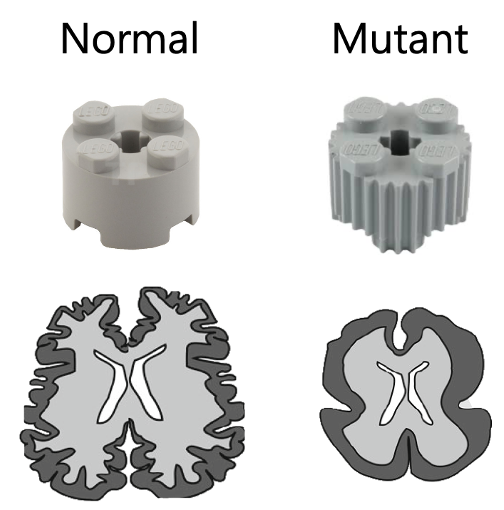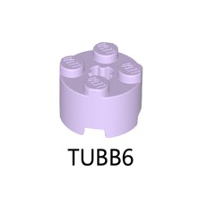Tubulinopathies
Tubulinopathies
What are the Tubulinopathies?
Tubulinopathy is an umbrella term describing a group of disorders caused by changes, or mutations, in one of many Tubulin genes.

Tubulinopathy mutations are small and spontaneous errors in the DNA sequence containing information to produce tubulin proteins.
Tubulin mutations often cause subtle changes to the composition of tubulin proteins; however, this can be enough to affect their ability to form the heterodimer or co-assemble into microtubules. If they can still incorporate into Microtubules, they can affect the microtubule stability, dynamics and even interactions with other proteins critical to brain development.
Consequently, what starts as a subtle change in a tubulin gene can impair the correct functioning of Microtubules, resulting in often profound effects on brain development.
Tubulin gene mutations can cause a spectrum of diseases, often characterised by brain malformations such as a reduction in brain size or irregularities of brain surface patterning. Depending on the severity of the structural effects, these disorders are often associated with other conditions that range from learning difficulties to drug-resistant seizures, profound developmental delay, and reduced life-expectancy.
The severity and type of tubulinopathy will largely depend on the specific tubulin gene affected, the specific mutation within this gene, but also other factors. For further information specific to each tubulinopathy gene, please click on the links below.
Inheritance
Tubulinopathies are rare disorders and are usually caused by “de novo” or spontaneous DNA changes that occur during conception – in other words, they are not inherited from a parent. Slight errors in DNA replication occur naturally, in most cases, do not cause any harm (in fact, these differences in our genetic makeup are what make us all unique). Unfortunately, if one of these errors affects a stretch of DNA that reduces the ability of a particular protein to function properly, or to function in a way that could be damaging, this is when they can cause disease.
The tubulinopathies are mutations affecting a tubulin gene, which impair the correct function of a tubulin protein.
It is common for parents to feel that they must have somehow caused these DNA changes, however these will not be a result of anything the parent has done during or before pregnancy.
The large majority of tubulinopathy mutations are de novo. If this is the case, there would be no increased risk to future offspring. Less frequently, one otherwise healthy parent may carry a mutation in a small proportion of their cells. If this includes their sex cells (eggs/sperm), there is an increased risk that they will pass it on to their offspring. You may hear this be referred to as Germline Mosaicism and your doctor or genetic counsellor will be able to explain this in greater detail.
The information on this website should not a substitute for personal medical advice. Families should always consult a medically qualified clinician.











